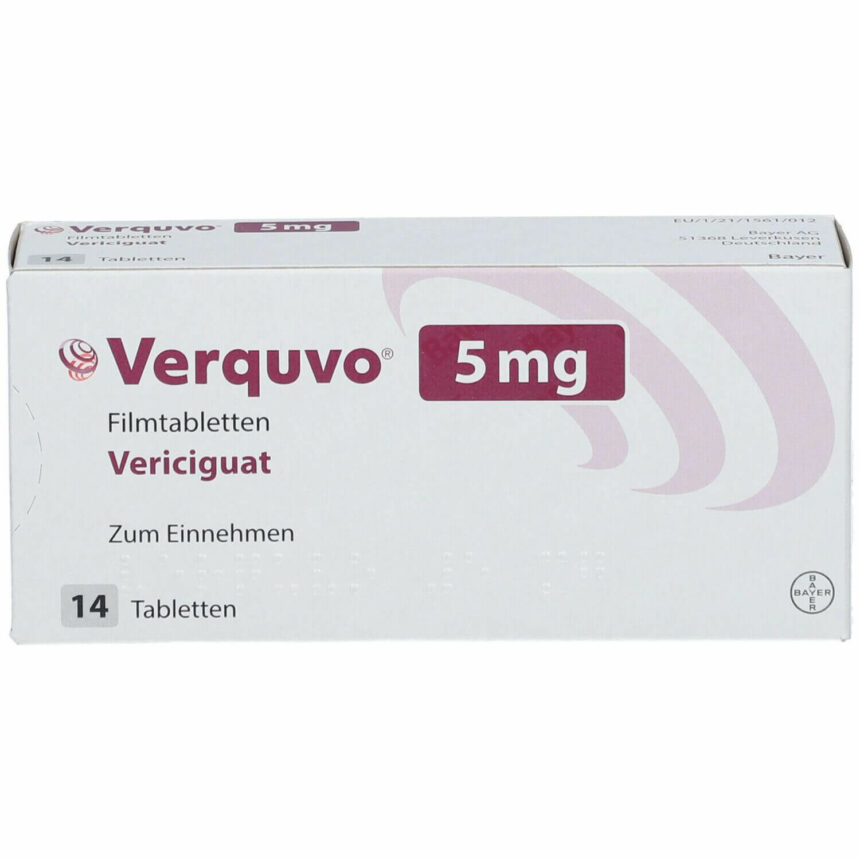Verquvo
$ 98.00 – $ 179.00
Verquovo is used in adults who have symptoms of chronic heart failure (measured with an ejection fraction less than 45%) and who have recently been hospitalized or needed to receive IV medication.
Verquvo (generic name: vericiguat) is an oral medication prescribed for adults diagnosed as having chronic heart failure symptoms classified as HFrEF (indication of an ejection fraction less than 45%) who have had a recent hospitalization or the need to receive intravenous medication.
Vericiguat is a novel drug that increases cyclic guanosine monophosphate (cGMP) levels, leading to improved cardiac function. It is used primarily to reduce the risk of severe cardiovascular events leading to hospitalization for heart failure.
Heart failure is when the heart is weak and cannot pump enough blood to the body. Patients with HFrEF can exhibit symptoms like shortness of breath, fatigue, reduced capacity to exercise, fluid retention (edema), and accelerated heartbeat. Dosage Verquvo comes in three strengths. The prescribing doctor will determine the dose and how it should be taken. The recommended starting dose is one tablet of 2.5 mg daily. The doctor will adjust the dose depending on how well it is tolerated during treatment. The dose will usually be increased after two weeks to one tablet of 5 mg daily and after two weeks up to the maximum of one tablet of 10 mg daily. If symptoms of low blood pressure are felt while taking Verquvo, this can cause dizziness and light-headedness, in which case the doctor may reduce the dose or halt treatment with Verquvo temporarily.
Take one tablet at the same time each day with food. If you cannot swallow the tablet, you may crush it and mix it with water. Take this mixture immediately after preparing it. Do not exceed the recommended dose.
Reviews
Write a review
The product has no reviews
Leave your review

